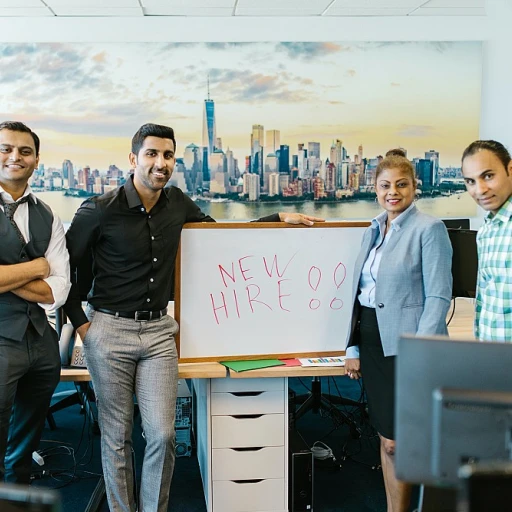
Understanding Virtual Event Production
The Essentials of Virtual Event Production
Understanding virtual event production is fundamental to delivering a memorable experience despite the lack of a physical venue. This task involves orchestrating various elements seamlessly on a digital platform. It transforms a traditional event into a virtual or hybrid experience that can cater to a global audience, offering exceptional opportunities for engagement and interaction.Virtual and hybrid events are centered around effective event production strategies. Digital platforms help with this transformation by allowing for high quality live streaming, video, and audio services that ensure smooth execution and flawless transmission. It is imperative that these services are well-organized and congruently aligned to meet the needs of both the team and the audience.
There are numerous vital components involved in event production, such as high-quality audio video tools, advanced virtual platforms, and engaging content design. With the right virtual production services, the transition to a virtual meeting or hybrid event can achieve remarkable results, sometimes even more effectively than an in-person event.
Whether you are providing content for virtual meetings or creating a live studio setup, a well-designed event production can lead to major successes. For businesses and organizations, mastering these mechanics not only enhances the quality of online meetings but also increases participant engagement and satisfaction, fostering more effective virtual experiences.
To explore how innovative spaces like coffee shops equipped with meeting rooms can play a role in enhancing remote work efficiency, visit our blog on exploring coffee shops with meeting rooms for remote work.
Tools and Technologies for Virtual Events
Essential Technologies for Seamless Virtual Events
Navigating the world of virtual event production requires a solid understanding of the tools and technologies that can make or break the experience. While many platforms offer a wide range of functionalities, selecting the right mix of solutions tailored to your needs is crucial for successful delivery. Here are some key components to consider:- Virtual Event Platforms: Choosing the right platform is foundational. Look for a solution that supports a seamless user experience, reliable live streaming, and robust interaction features. Platforms that allow easy integration with other tools can significantly enhance the quality of your event.
- Audio and Video Quality: High-quality audio video production is non-negotiable for any virtual meeting or event. Invest in good microphones and cameras to ensure clear sound and crisp video, creating a more immersive experience for attendees.
- Web Conferencing Tools: These tools are essential for supporting virtual meetings and hybrid events. Ensure that they have capabilities for breakout sessions, screen sharing, and recorded sessions to enhance engagement and accessibility.
- Content Management Systems: To effectively manage and distribute content before, during, and after your event, a reliable content management system is invaluable. It helps in organizing resources, scheduling, and keeping everyone on track.
- Virtual Support Teams: Having a dedicated team to monitor and support the technical aspects of your virtual event in real-time can help troubleshoot any issues that arise, ensuring a smooth experience for participants.
Challenges in Virtual Event Production
Overcoming Obstacles in Producing Virtual Events
In the world of virtual event production, challenges are plentiful, often stemming from the need to create a seamless and engaging experience across diverse platforms. Numerous elements can disrupt the process, such as technical glitches, inadequate support, and the challenge of fostering interactivity.
For starters, the selection of the right event platform is crucial. The platform must support all necessary features, from live streaming to interactive networking, ensuring high-quality audio video output. Inadequate technological infrastructure can lead to lags, disconnections, and a compromised live experience.
Managing a team in a virtual setting also presents unique hurdles. Clear communication is key to delivering synchronized production services. It's essential to engage experts with years of experience in virtual meetings and hybrid events production to avoid coordination pitfalls.
Moreover, designing an engaging content strategy is paramount for virtual and hybrid events. Unlike in-person events, virtual audiences require more dynamic and interactive presentations to maintain engagement. Hence, leveraging tools that allow for real-time audience participation can dramatically enhance the virtual event experience.
Another significant issue is ensuring reliable support during virtual meetings. When technical difficulties arise, immediate and effective solutions are vital. Hence, having a technically proficient support virtual team is non-negotiable.
Lastly, the competition is increasingly fierce in offering hybrid and virtual events of high quality. To stand out, producers need to innovate continuously, integrating new technologies such as virtual reality or augmented reality to create a more immersive experience. The goal is to blend the aspects of in-person virtual experiences with web conferencing solutions effectively.
Despite these challenges, mastering the art of virtual event production is attainable through strategic planning, investment in the right tools, and hiring a skilled production team. For best practices and tips on securing the ideal venues or virtual platforms, consider exploring how unique spaces like premier coworking spaces can play a role.
Best Practices for Engaging Virtual Audiences
Strategies for Captivating Your Audience
In the evolving landscape of virtual event production, one of the key factors in ensuring success is engaging your audience effectively. Virtual audiences require different strategies compared to in-person attendees due to the inherent differences in experience delivery. Here are some best practices to consider:
- Interactive Content: Incorporating interactive elements in your virtual events is crucial. This could include live polls, Q&A sessions, or breakout rooms in virtual meetings. These elements transform the typical monologue into a dialogue, fostering active participation.
- High-Quality Audio and Video: Crystal clear audio and video quality significantly enhances the viewing experience. Utilizing professional-grade production services can assure your virtual or hybrid event delivers this high standard, engaging the audience better.
- Compelling Storytelling: Regardless of the platform, weaving storytelling into your presentation effectively holds your audience's attention. Whether through a live video demonstration or a pre-recorded segment, connecting emotionally with your audience is key.
- Optimized Virtual Platforms: Choosing the right virtual platform that supports hybrid events or live streaming with ease is a game-changer. These platforms should offer features that help manage large audiences seamlessly while providing support for unforeseen issues.
- Professional Design: The visual design should mirror the high quality of your content. Be it the virtual background in meetings or the overall interface design; it should be visually appealing and cognitively stimulating.
By considering these strategies in your virtual event production, you stand a better chance at not just meeting but exceeding the expectations of your virtual audience, ensuring a memorable event experience that resonates beyond the digital realm.
Case Studies: Successful Virtual Events
Real-world Success Stories of Virtual Events
Exploring case studies of successful virtual events can provide invaluable insights for both novices and experienced event leaders. Over recent years, countless amazing virtual and hybrid events have set high standards in terms of creativity and audience engagement.
Several virtual platforms have helped teams design events that seamlessly balance both audio video quality and interactive experiences. Take, for instance, a high-profile global conference that transitioned from an in-person event to a fully virtual setting. Using advanced production services, the event incorporated live streaming and pre-recorded content, ensuring smooth and uninterrupted delivery.
A major key to success was utilizing a robust streaming service, which could support virtual meetings without technical glitches. Ensuring that the studio setup included necessary components for a high-quality production made all the difference. Engaging multimedia content was streamed to thousands of attendees, significantly enhancing the viewing experience.
- Interactive Elements: Implementing polls, Q&A sessions, and live chats provided an enriching experience and encouraged participant interaction.
- Hybrid Components: Some events effectively utilized a hybrid approach, combining in-person elements with virtual components to cater to diverse audience preferences.
- Team Collaboration: The success of these events was supported by a proficient technical and creative team, ensuring synchronized efforts across different production facets.
These case studies underscore the importance of strategic planning and the right tools to overcome potential challenges in virtual event production. Furthermore, they highlight the critical role of engaging content and careful platform selection in crafting compelling virtual experiences.
Future Trends in Virtual Event Production
The Evolution of Virtual Event Platforms
The realm of virtual event production has witnessed a significant transformation over the years. As more organizations shift towards digital solutions, platforms offering sophisticated virtual meeting capabilities have become indispensable. High-quality audio video integration, seamless live streaming, and interactive features are now expected by audiences seeking engaging virtual experiences.
Embracing Hybrid Events
The demand for hybrid events is a testament to the evolving nature of event production. Blending the advantages of both virtual and in-person gatherings, these events cater to a wider audience. The need to design content that resonates with both online and offline attendees is critical, necessitating a synchronized approach in events.
Advancements in Technology and Services
Comprehensive event production services now encompass cutting-edge technologies like web conferencing tools and sophisticated virtual platforms. Companies with years of experience in audio video production are constantly innovating to deliver better quality and immersive experiences. By leveraging these advancements, production teams can uplift the overall quality of virtual meetings.
Personalization and Audience Engagement
Creating personalized interactions remains a pivotal strategy in virtual event design. Tailoring content to meet the diverse needs of the audience increases engagement and leaves a lasting impression. Organizers are leaning towards options that provide live feedback and segmentation to enhance audience engagement during person virtual interactions.













